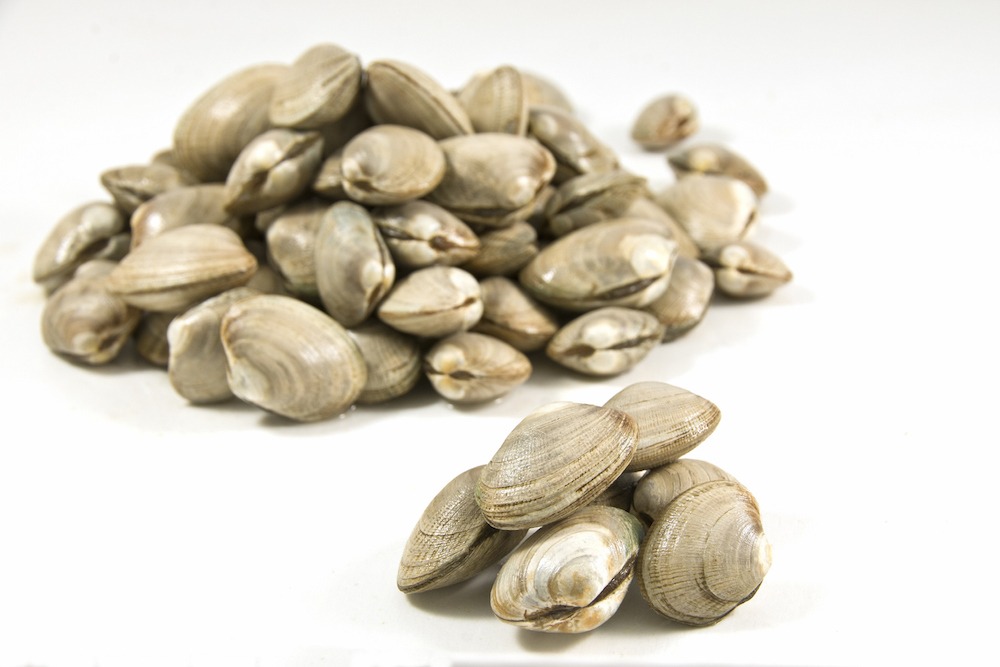Bernardo Ferreira de Carvalho acknowledges the trend in making “alternative” proteins, like cellular or plant-based meat. But he argues that some animal-based proteins are highly sustainable—like clams.
“Clams are like sleeping giants. They’re primitive creatures that are very low energy and require very few inputs,” Carvalho, founder and CEO of Portuguese aquaculture venture Oceano Fresco, tells AFN.
Carvalho believes bivalve farming is a viable way to meet the world’s growing demand for protein while minimizing and even alleviating strain on the environment. Oceano Venture has raised a €2.7 million Series A funding round to test this thesis.
The round, led by Lisbon-based venture capital firm BlueCrow Capital, will be used to develop an off-shore farm where Oceano Fresco will grow and harvest two types of native European clam species for sale across Portugal, Spain, France and Italy.
Worldwide, almost 90% of the 15 million tonnes of annually consumed bivalves, which include clams, mussels, scallops and oysters, are farmed, according to the FAO. In Europe, the most popular item are mussels, and while Europe imports a significant share of mussels from Chile and China, there is also a healthy farming industry in Spain, France and Italy that serves Europe as well.
Clams, on the other hand, which are a more premium item, largely come into Europe from China. The clams that are harvested locally tend not to be native European species, but a species from Asia known as the Manila clam, which was introduced in European waters about 40 years ago, Carvalho says.
Oceano Fresco’s plan is to grow two European clams species—Ruditapes decussatus and Venerupis corrugata—which Carvalho hopes will restore local bivalve biodiversity in addition to becoming a popular food item.
Market approach
Oceano Fresco’s strategy is to cultivate the two types of clam seedlings in its on-shore R&D center, then transport the seedlings to a 100-hectare off-shore farm, where they will grow for two years before being harvested for market. The company also eventually plans to sell the seedlings to other bivalve farmers in southern Europe.
Carvalho explains that his company is focusing on clams rather than other common bivalve species like mussels, because clam farming has been slow to adopt high-tech, scientific approaches that would make the sector more efficient and viable.
“Clams are a high-value species, but not many people are investing in R&D to produce them at scale,” he says, adding that the non-fish-based aquaculture sector would benefit from the longer-term, high-tech mindset that fish farmers are adopting.
Oceano Fresco is not a low-cost endeavor, however. Off-shore farms are far more capital intensive than on-shore, and to off-set the costs, the company has to harvest large quantities. (Carvalho declined to specify how much at this point.)
“If you farm in an estuary, the facilities are simple. But there are almost no on-shore areas left,” he explains. “For off-shore, you need a submerged structure, with vertically suspended plates that’s [bolstered by] buoys and operated by boats.”
Carvalho says Oceano Fresco lucked out in its partnership with BlueCrow Capital, a “bio-economy” focused venture capital firm that targets highly scientific, export-driven ventures that require some measure of physical assets. “BlueCrow Capital is one of the few investors in Portugal with this focus,” Carvalho explains. “Ten years ago, that kind of capital was non-existent in Portugal.”
Funding from its Series A round will be used to support its R&D center, which will open in March of 2020, and its off-shore farm, which will open in October the same year. Its first batch of clams are expected to hit the market in 2022 or 2023. Its initial target markets are southern European countries, and eventually Japan and South Korea.
In all, the company has raised €7.5 million in funding, including €3.5 million in grants and more than €1.5 million from the founders and a group of seed investors.





